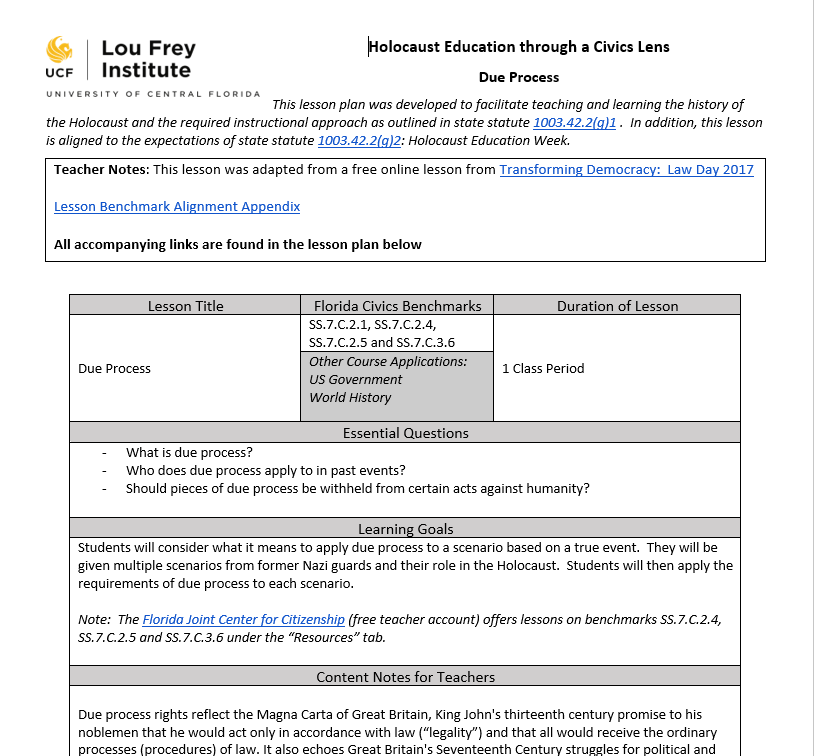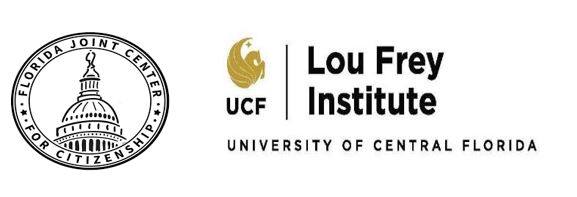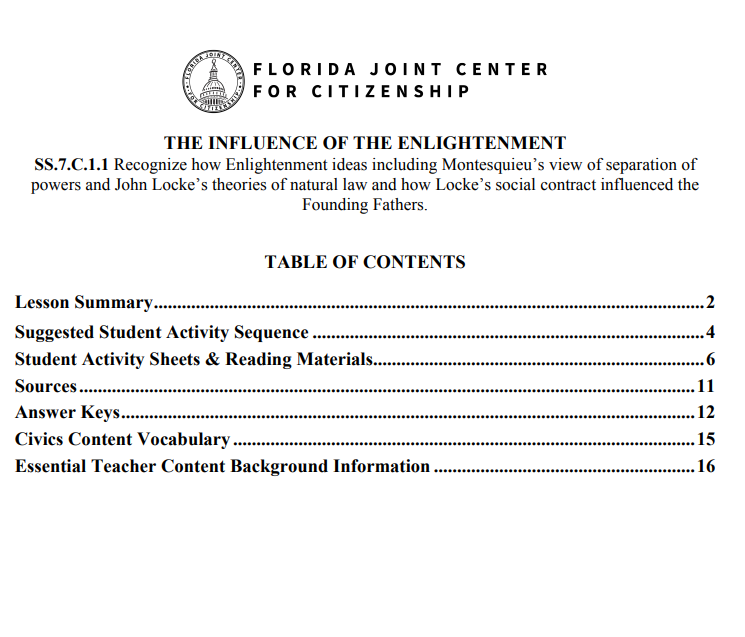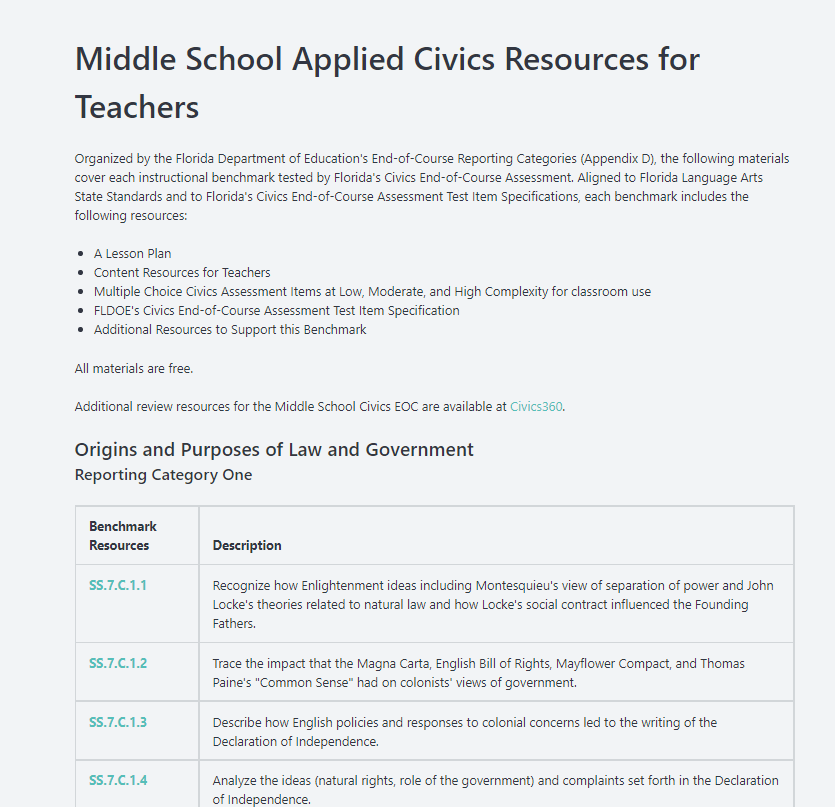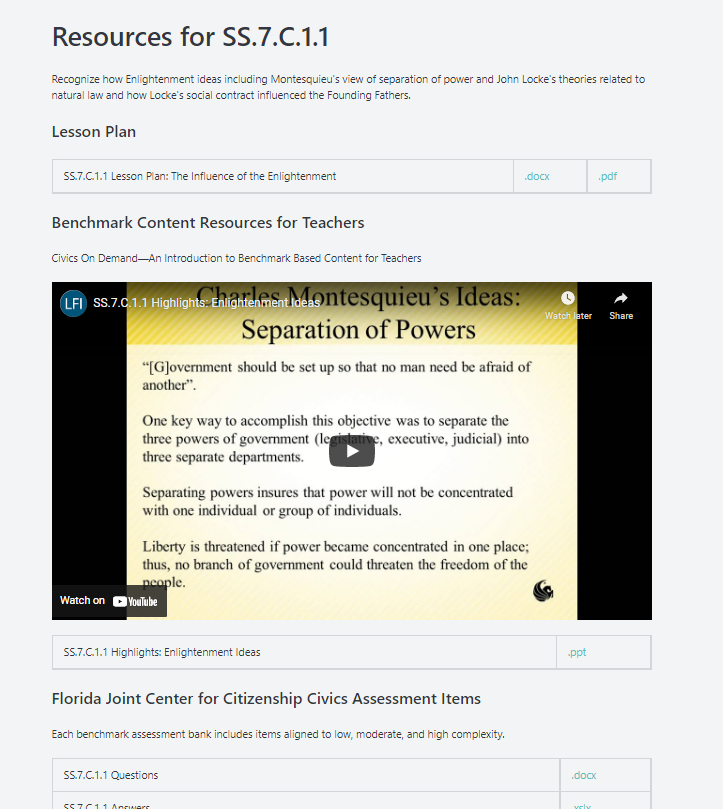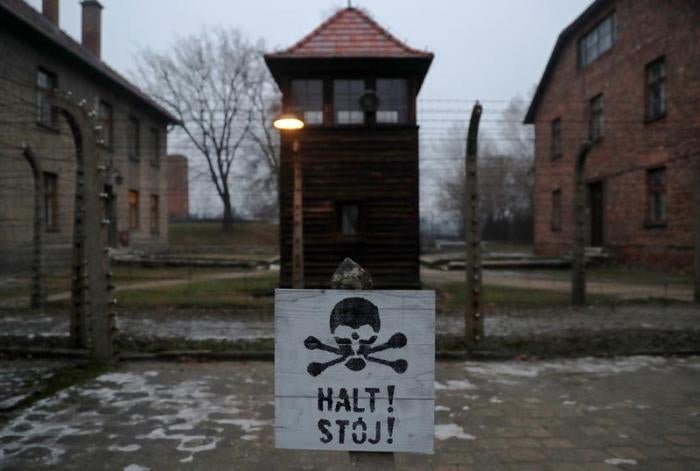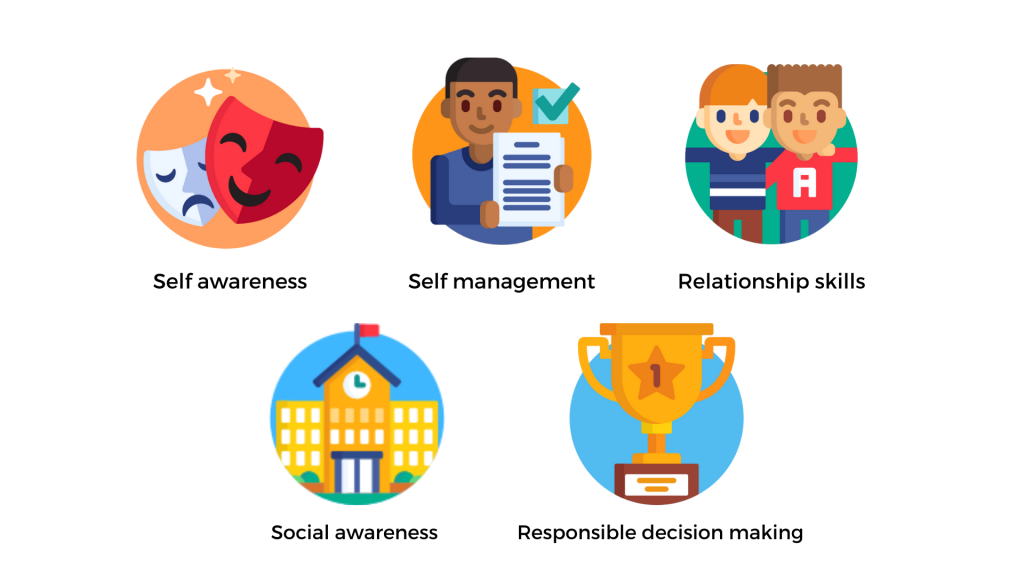Good morning friends. This Holocaust Education Week here in Florida, we are please to share with you a new set of stand alone lessons that connect civics concepts and ideas to aspects of the Holocaust. These lessons are for middle and high school students and cover a wide spectrum. Please note that a free Florida Citizen log in may be required.
In this lesson, students will understand the key concepts about how and why the Holocaust happened. Students will view a detailed timeline through a series of short video clips and analyze how the Nazis persecuted and murdered Jews as well as other people targeted during the Holocaust (1933 -1945).
Civil Disobedience
In this lesson, students will be introduced to the concept of civil disobedience through direct instruction and methods of classification regarding types of resistance. The students will then examine multiple primary sources of Jewish and non-Jewish resistance during the Holocaust. Students will then classify the type of resistance presented in the primary source scenarios.
Comparing Preambles
This lesson focuses on how leaders shape the goals and purposes of government as established by the preambles to their constitutions. In this lesson students will compare the Wimar Republic and the United States preambles to important foundational documents. They will complete this by using primary text excerpts and other visual resources. Through analysis and application students are able to see the goals and intentions of these governments.
Declaring Independence
In this lesson, students will shape arguments about Israel and its connection to independence on the international stage using the seven reasons outlined in the Israel Declaration of Establishment. Students will outline the relationship between Israel and the United States. This lesson will support student understanding as to why newly independent nations seek such recognition including trade opportunities, diplomatic relations, and military protection.
Due Process
This lesson will consider what it means to apply due process to a scenario based on a true event. They will be given multiple scenarios from former Nazi guards and their role in the Holocaust. Students will then apply the requirements of due process to each scenario.
Loss of Natural Rights
In this lesson, students will learn about how the Nazi regime used various social, political and legal tools to exclude Jews from society. Students will view seven scenarios in Nazi Germany that depict a loss of rights. Each scenario will include several artifacts such as images, data, or text, that the students will use to determine which rights are being denied.
Nazi Propaganda
In this lesson, students will define propaganda and how propaganda is used to support a government’s agenda. Students will apply critical reading and thinking skills to various media presentations through analysis of the techniques commonly used in Nazi propaganda. Students will analyze how Nazis used propaganda to indoctrinate and manipulate the German people.
Preventing Genocide
In this lesson students will apply their knowledge of the rule of law and forms of government by comparing two forms of government (autocracy and representative democracy) and their impact of the rule of law comparing Nazi Germany to the United States government. This will be completed by using a student friendly reading and then constructing a two column comparison chart.
Rule of Law & Forms of Government
In this lesson students will apply their knowledge of the rule of law and forms of government by comparing two forms of government (autocracy and representative democracy) and their impact of the rule of law comparing Nazi Germany to the United States government. This will be completed by using a student friendly reading and then construct a two column comparison chart.
Wagner-Rogers Bill
In this lesson students will apply their knowledge of the legislative process by examining a proposed bill from Congress regarding refugee quotas at the start of World War II. Students will complete a close read activity using a primary source document (Wagner-Rogers Bill) to determine the author’s purpose. Through this lesson they will be able to connect how the United States attempted to respond to the Jewish refugee crisis.

